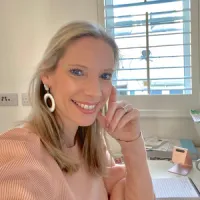Room for More - The Blog

3 Areas Of Your Life You Should Spend Time Getting To Know
Whilst there are arguably infinitely more than three areas of your life that you should spend time getting to know, in my experience the three that I am about to list out and talk about cover so many bases that even if you only focus your attention on these three areas, you will notice that due to the ripple effect, other areas of your life will also be positively affected.
So without further ado, here are three areas that you should make sure you spend some time exploring, understanding and becoming the leader of.
The Big Picture
What are your ambitions for your life? What goals are you currently working on achieving? What is your ultimate desire in life? What do you want your legacy to be?
Whilst it might seem obvious to say that you should have some idea of the answers to each of these questions, so many people are going through life in a state of just existing, living in “maintenance mode” of trying to make it to the end of each day having achieved everything that needs done, just to start all over again the next day and so on and so on, rather than living life and experiencing all the flavours it has to offer.
If you’re putting off the task of sitting with yourself and exploring what it is you want from this one and only life you are lucky enough to be living, ask yourself what the up-side is of not doing just that. The most it will end up costing you is your time. If you’re willing to accept that the time you invest in sitting down in a quiet space and evaluating your life and where you want to go and what you want to work towards, is time that might harvest no rewards, then there really is no downside to taking that time. That time will pass anyway, so why not spend it on an activity that might spark something inside of you that propels you to heights you can’t even imagine right now.
If you don’t know where you want to go, you will surely never get there.
Values
What’s important to you? I don’t mean physical things, like your jewellery collection, or your phone. I’m talking about the principles or standards of behaviour that are important to you and your life.
Values are the things we hold in high esteem and deem to be of great importance to us. Our values make up our moral compass and allow us to determine whether something or someone is a good fit for us and our life.
And for this reason alone, it is imperative that you know what you value in life. Because it is only when you know what it is you do value, that you are more equipped and able to spot when something, or someone comes along that doesn’t align with the things you value in life.
And being able to spot those people or things means you can avoid bringing them into your life, and with them the attitudes/behaviours/opinions/whatever it may be, that are contrary to what it is you value.
And so the result is that you end up curating a life that is full of people and things and experiences that support and respect your view of what’s important in life, rather than just letting all the people and all the things into your life regardless of what their opinions are.
I’m not saying that you shouldn’t let people in because they have a different list of values to you, but being aware of what those differences are will allow you to invite that person into your life knowing from the outset that you each hold different things in high regard and so you can act accordingly and with respect towards the things they value without compromising your own values. This approach allows for a much more honest and elegant exchange between two people who acknowledge they are different but who want to be party to the conversation/friendship (or whatever it may be), anyway.
So what are your top three values? And are you good at letting them guide you as to what comes into your life and what’s not allowed?
Perhaps you are always putting up with that one friend who constantly lets you down and you let their behaviour slide, making excuse for them. Or the co-worker who is rude to you in front of the rest of the team but you never say anything to defend yourself. There are so many instances in everyday life where you are probably letting the actions/behaviours/opinions of others prevail despite the fact those actions, behaviours and opinions go against everything you deem important.
Get to know what things are fundamentally important to you and which should underpin the decisions you make, the goals you set yourself, and the direction your life goes in, and use those values to guide you to a life that is authentically you.
Financials
I can’t stress enough the importance of understanding your financial position. Regardless of what your financial position is, you can’t make effective changes unless you understand it.
If left unattended for too long things can get out of hand, debt can spiral, cash reserves can dwindle, you have no clue how much you have or don’t have in your bank account and you’re counting down to payday for the next cash injection just to ease the pressure, and you bury your head deeper and deeper in the sand. But being in the sand won’t help. What will help is taking the bull by the horns and getting stuck in. Look at your bank statements – and I don’t mean at the end of the month; by then it’s too late. If you leave it until the end of the month to reconcile your bank accounts all you’re doing is looking at where your money went. Whilst you can’t do anything about where you spent your money last month, what an end-of-month review can do is show you what your spending habits are. And that’s useful information that you can use going forwards to better plan what to do with your money.
The best definition I ever heard for a budget is this: a budget is telling your money where to go rather than wondering where it went.
I am all for knowing where my hard-earned pounds are being spent and reconciling my bank account multiple times a week is something I have been doing for years. Knowing exactly what’s in my bank account and what’s still to come out before the end of the month allows me to stay on top of my bank balance to ensure that no mis-haps happen, like going overdrawn or bills not being able to be paid on time.
Yes, facing up to your financial position can be a scary thought, but that’s all it is; a thought. Your financial position is what it is regardless of whether you look at it. Looking at it won’t make it worse. Looking at it will give you information and data. And once you have that information and data you are able to make more informed choices around your spending/savings habits. In actual fact, once you do look at your financial position, the likelihood is that it will improve because you’re more likely to want to take action to improve it once you’ve looked at it.
You will always have a financial position – some weeks/months/years will be better than others, and it might not be the financial position you want for yourself, but you will always have a financial position. It’s yours. Take pride in it. Look after it. Tend to it. Nurture it and show it love and care. How can you expect it to grow if you’re ignoring it and won’t look at it?
If you would like any help with anything I’ve talked about today, I’d love to have a conversation with you about it.
Have a great day
© Copyright 2022 Room For More
